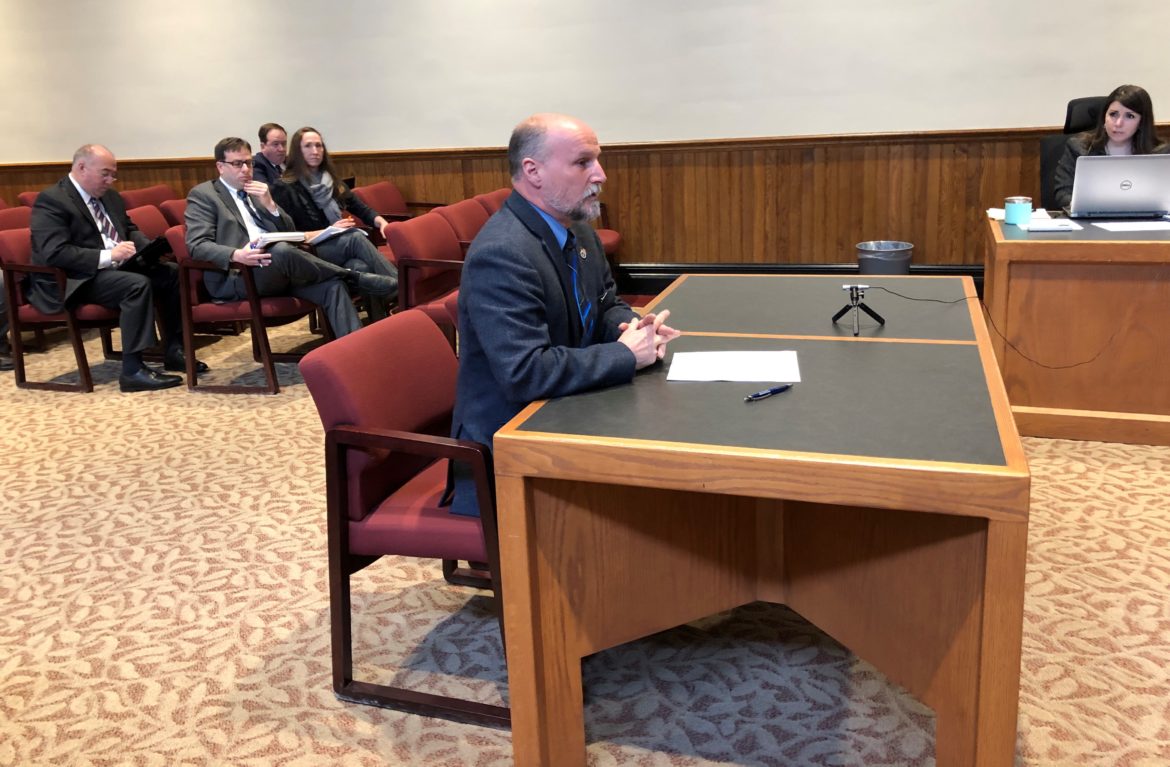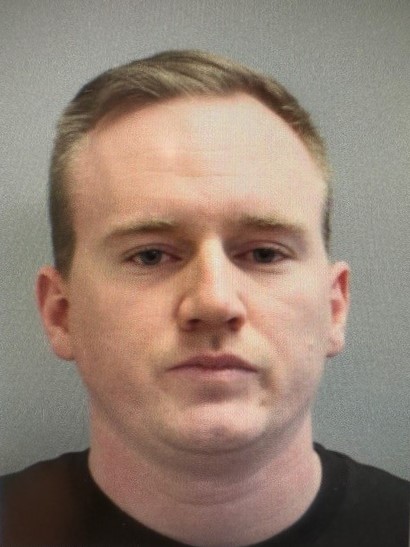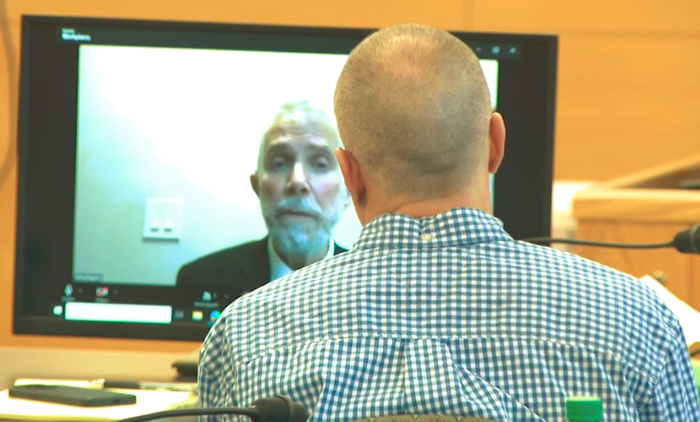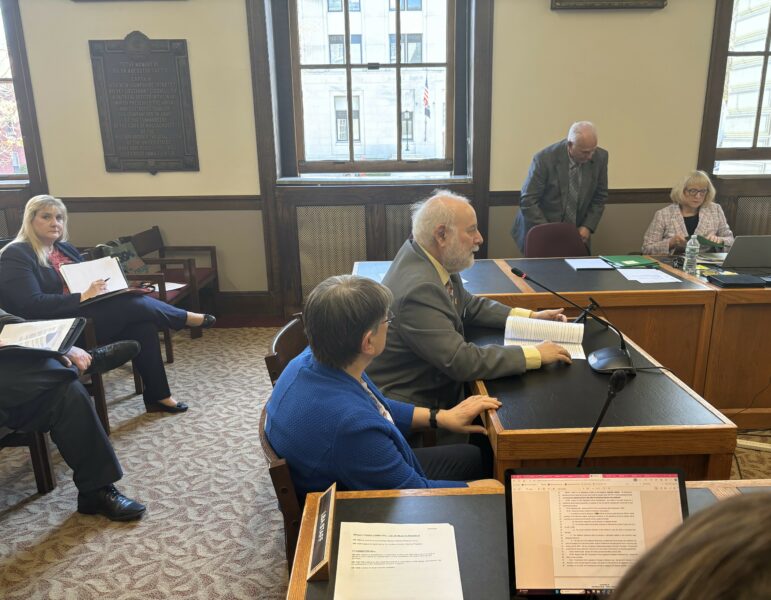By PAULA TRACY, InDepthNH.org
CONCORD – Jennifer Cormier of Dunbarton told senators that if the state legalizes sports betting, it could increase problem gambling and allow for more people to be “sucked into an addictive cycle.”
Cormier said she worried that it could ruin families and lead children into a “welfare cycle.”
But Rep. Tim Lang, R-Sanbornton, said the state would bring an illegal practice “into the light” and offer problem gamblers help by de-stigmatizing it.
Lang’s bill, House Bill 480, was heard by the Senate Ways and Means Committee on Wednesday after easily clearing the House on a vote of 269-82 on March 19.
The committee did not vote on the measure.
Gov. Chris Sununu said he favors the bill which would allow new revenues to go to education.
Cormier said she came to the State House as a “concerned citizen” Wednesday to express her concerns that by legalizing sports betting, new people would be attracted to it and that children, in the end, would suffer.
“It can financially ruin people,” she said.
Placing limits or caps on betting would do nothing, she said, because just like alcoholics “you have to stop completely.”
Cormier was the only opponent to speak against the bill.
As it is currently envisioned, the bill would allow up to 10 betting locations throughout the state, but would prohibit wagering on high school games and on New Hampshire college and university teams, with some exceptions for certain tournaments, the senators were told.
The proposal is projected to produce up to $10 million in revenue during the first year, according to the Lottery Commission, which would oversee the operation.
Rep. Richard Ames, D-Jaffrey, vice chair of the House Ways and Means Committee which worked on the bill, answered a number of questions from senators.
Ames told House lawmakers in March that across the nation illegal sports betting is estimated to top $150 billion annually in the black market.
The bill would create the Council for Responsible Gambling which Ames said is an important part of the initiative.
The council will “promote education, prevention, and treatment of problem gambling within the state,” the bill reads. It would consist of five members appointed by the governor and executive council who are qualified in the field of addiction and mental health services with a focus on problem gambling.
The council would have authority to enter into contracts to further education and treatment with money not to exceed $250,000 per fiscal year from gambling revenue.
Ames said such a council is “overdue and a welcome initiative.”
There was some discussion about prohibiting certain types of wagers while a sporting event is in-play, whether 10 sites was enough or too many, types of advertising that would be allowed. Committee members asked John Conforti, chief compliance officer with the New Hampshire Lottery, what percentages the state might get from various licensed agents.
Conforti said Rhode Island receives 50 percent of the revenue from sports betting while in other states the percentage is lower. It would be a subject of negotiation between agents and the state, he said.
Sen. Bob Giuda, R-Warren, asked if two enforcement investigators would be enough as the bill states.
Conforti said the two would be supplemental to the investigation team of four the commission already has and there would also be auditors who will be looking at transactions.
“We do feel we are staffed appropriately…to fully regulate this,” within the bill’s language, Conforti said.
Sen. Lou D’Allesandro, D-Manchester, thanked Ames for all the work he has done on the bill.
“I think we should go all the way with gaming. We are always on the fringes,” he said.
The U.S. Supreme Court last year ruled in Murphy vs. National Collegiate Athletic Association the federal law prohibiting states from allowing betting on professional and amateur sports was unconstitutional.
The bill limits betting to individuals who are at least 18 years old and would allow mobile betting from cell phones or other mobile devices. However, the person making the bet would have to be in New Hampshire when it is made.
Communities would have to vote to allow one of the 10 betting stations within their boundaries.





